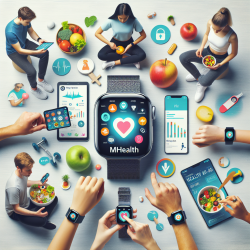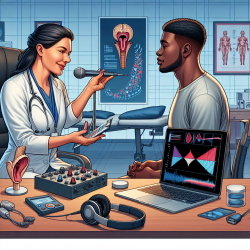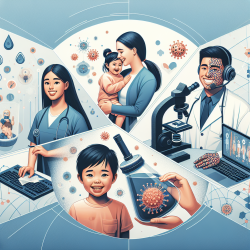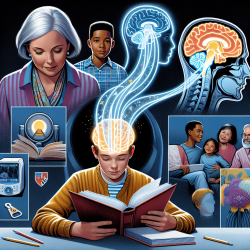Introduction
In today's digital age, the intersection of technology and healthcare has paved the way for innovative solutions to manage chronic noncommunicable diseases (NCDs) in young adults. As a practitioner working with children and young adults, understanding the potential of mobile health (mHealth) technologies can significantly enhance your ability to support self-management and improve health outcomes.
The Power of mHealth Technologies
According to a systematic review titled End User and Implementer Experiences of mHealth Technologies for Noncommunicable Chronic Disease Management in Young Adults: Systematic Review, mHealth technologies have shown promise in managing conditions such as diabetes, asthma, and cancer among young adults. These technologies offer functionalities that support self-management, improve clinical encounters, and encourage positive health behaviors.
Key Findings and Recommendations
- Functionality and Self-Management: mHealth technologies provide tools for monitoring health status, medication adherence, and symptom tracking, which are crucial for self-management.
- Codesign and User Engagement: Involving end users in the design process ensures that the technology meets their needs and preferences, leading to higher acceptance and usability.
- Implementation Challenges: Successful integration of mHealth requires addressing system-level challenges, including data security, organizational readiness, and regulatory compliance.
Implementing mHealth in Practice
For practitioners, incorporating mHealth solutions into your practice involves understanding the specific needs of your young clients and collaborating with stakeholders to design user-friendly applications. By doing so, you can facilitate better health outcomes and empower young adults to take charge of their health.
Encouraging Further Research
While the review highlights the potential of mHealth technologies, it also underscores the need for more high-quality studies to evaluate their effectiveness in real-world settings. Practitioners are encouraged to engage in research and contribute to the growing body of evidence supporting the use of digital health interventions.
Conclusion
mHealth technologies represent a transformative approach to managing chronic NCDs in young adults. By leveraging these tools, practitioners can enhance self-management, improve clinical interactions, and ultimately, achieve better health outcomes for their clients. To explore the detailed findings and recommendations, read the original research paper here.










